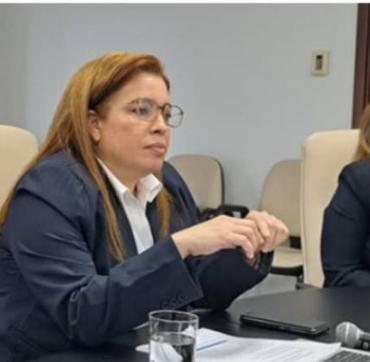Skin to Skin Contact between Mothers and Preterm, Underweight Babies Improve Chances of Survival, says WHO
especiales

The World Health Organization (WHO) has strongly recommended that babies born before 37 weeks of gestation (preterm) or with low birth weight should be provided immediate skin to skin contact with a caregiver, which in turn increases their chances of survival.
This recommendation by the global health agency is a significant change from the previous guideline which stated that preterm babies and babies born with low birth weight should be first stabilised in an incubator before any other interventions.
The WHO released the new guidelines for care of preterm or low birth weight infants days before World Prematurity Day, 17 November, which is promoting skin to skin contact as the theme of this year.
The change in the existing guidelines comes in light of strong evidence of survival in babies born before a gestational period of 37 weeks or with a birth weight of under 2.5kgs. The new guidelines consist of 25 recommendations, of which 11 are described by WHO as “strong” recommendations based on robust evidence, and 14 are conditional recommendations, based on emerging evidence.
“The first embrace with a parent is not only emotionally important, but also absolutely critical for improving chances of survival and health outcomes for small and premature babies,” Dr Karen Edmond, Medical Officer for Newborn Health at WHO said, in a press release. She added that separating babies from their mothers at childbirth is catastrophic to the health of these babies, as seen during Covid-19. “These new guidelines stress the need to provide care for families and preterm babies together as a unit, and ensure parents get the best possible support through what is often a uniquely stressful and anxious time.”
The latest guidelines also include a good practice statement on the need for parental leaves and entitlements for parents and other primary caregivers of preterm or low birth weight babies.
Immediate Kangaroo-mother-care
Every year, 15 million babies across the world are born before reaching a gestational age of 37 weeks. This is over 10% of the total births annually. Prematurity is the leading cause of deaths in children under the age of five.
Skin to skin contact, also known as Kangaroo-mother care (KMC), between the infant and the caregiver immediately after birth has shown to reduce infections, hypothermia and improve feeding.
In making its recommendations, WHO analysed 27 randomised controlled trials conducted from 1994 to 2021, which involved 11,956 infants, that studied the differences in outcomes between later KMC of preterm and low birth weight infants and infants provided with KMC immediately. These studies were conducted in high-income, upper-middle income, lower-middle income and lower income countries.
A study published in the New England Journal of Medicine (NEJM) in 2021, which laid the foundation for the new WHO recommendations, found that based on the available data, initiating skin to skin contact immediately after birth has the potential to save up to 150,000 babies from dying each year.
KMC was already known to reduce mortality by 40% when started after the infants are clinically stabilised. Starting the process immediately after birth improves the chances of survival by an additional 25%, as per the NEJM study.
A clinical trial, which was part of the study, was conducted across five countries – India, Malawi, Nigeria, Tanzania and Ghana.
Role of community support crucial
In the new guidelines, the WHO has also emphasised the importance that one’s family, community and local resources can have in improving the survival of preterm or low birth weight babies.
Apart from education and counselling programmes, the agency pointed out that adequate and appropriate leave for parents and primary caregivers of such babies can go a long way in improving their outcomes.
“Home visits by trained health workers are recommended to support families to care for their preterm or low-birth-weight infant,” the recommendations continued.














Add new comment